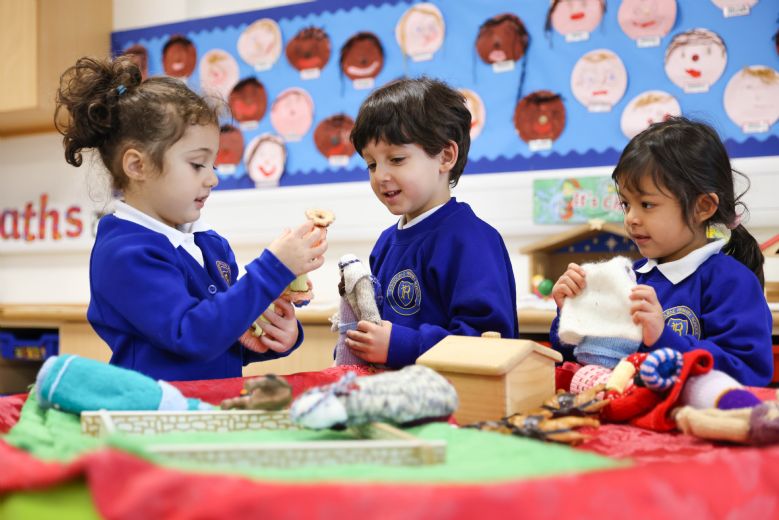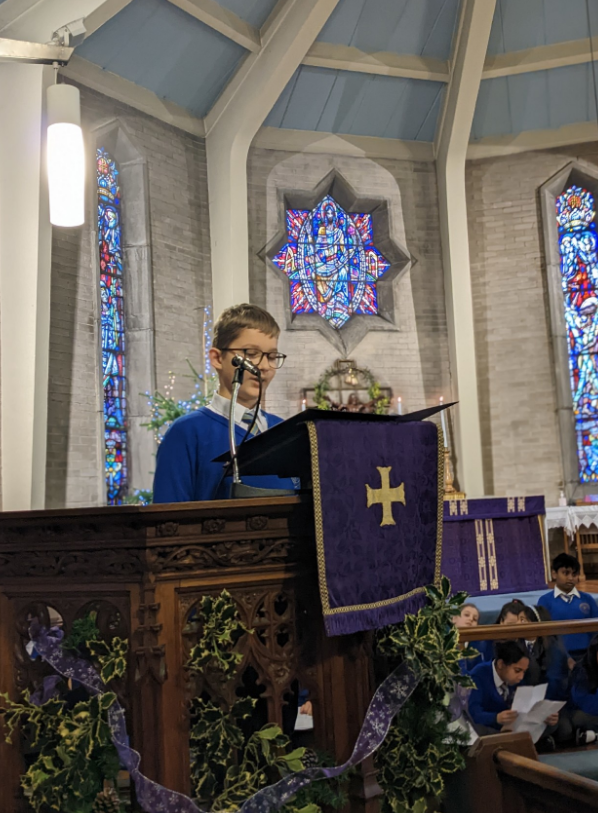Religious Studies


Vision
To inspire all our pupils to engage in thinking about significant human questions through the lenses of different religions and world views.
Curriculum Design: How our curriculum is constructed and why?
We support pupils to develop the understanding and skills they need to consider varied responses to enquiry questions and develop their own views and ideas over time. In doing so, we foster sensitivity, tolerance, respect and understanding of various religions and belief systems. Religious Education enables pupils to investigate and reflect on some of the most fundamental questions asked by people. At Roxbourne Primary School, we develop the children’s knowledge and understanding of the major world faiths, and we address the fundamental questions in life. We enable pupils to develop a sound knowledge of world religions. Children reflect on what it means to have a faith and to develop their own spiritual knowledge and understanding. We help pupils learn from religions as well as about religions. Our school RE curriculum is based on the London Borough of Harrow SACRE Agreed Syllabus and it meets all the requirements set out in that document. The ERA states that the RE syllabus should reflect the fact that the religious traditions in Great Britain are in the main Christian, and that it should, at the same time, take account of the teachings and practices of other major religions.
Curriculum Delivery: What our curriculum looks and feels like in action?
We plan our Religious Education curriculum in accordance with the Harrow SACRE’s Agreed Syllabus. We ensure that the topics studied in religious education build upon prior learning. We offer opportunities for pupils of all abilities to develop their skills and knowledge in each unit, and we ensure that the planned progression built into the scheme of work offers the pupils an increasing challenge as they move through the school. The subject leader prepares the Mid Term Plans for each year group, including the unit’s enquiry question, attainment targets and learning outcomes, as well as each lesson’s learning objective and success criteria. All plans are available to staff on the shared network for ease of access and modification. We teach weekly RE lessons in Reception through to Year 6. In EYFS, children additionally learn about RE through the celebration of festivals and as part of their provision for the Understanding the World area of learning.
Impact: How do we know our pupils are learning, understanding and remembering our intended curriculum?
Our teachers check learners’ understanding systematically, to identify misconceptions accurately and provide clear, direct feedback. In doing so, they respond and adapt their teaching as necessary, to ensure new knowledge is embedded. They use formative assessment strategies such as quizzes, over the shoulder marking and questioning to check for understanding 'in the moment'. For summative assessment, pupils are required to respond to an open ended question, or complete an essay which is linked to the enquiry question. Teachers will then assess this to inform them on a pupils' understanding of the unit and their application of the taught knowledge.
Enrichment in RE
We are fortunate to live in such a diverse community which provides lots of opportunities to learn about different cultures and religions. Therefore, as part of our enrichment programme, our pupils visit different places of worship linked to their unit of study.
The places of worship we visit are:
> St Andrews Church (Christianity)
> The Gurdwara (Sikhism)
> Lelung Buddhist Centre (Buddhism)
> Masorti Synagogue (Judaism)
> London Central Mosque (Islam)
> Shri Swaminarayan Mandir (Hinduism)
We also celebrate key religious festivals throughout the year in special assemblies, dedicated curriculum time and school displays.
You can find more about our enrichment programme here.
